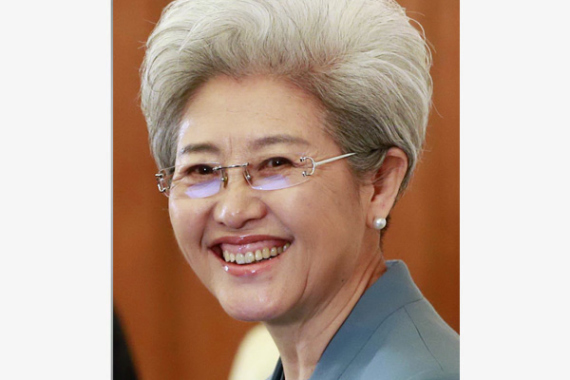
Fu Ying, chairperson of Foreign Affairs Committee of China's National People's Congress.
Some reflections on relations between Beijing and Washington on the eve of the G20 Hangzhou Summit
The 2016 G20 summit will be held on 4-5 September in the Chinese city of Hangzhou. China as the host, stands ready to work with other members under the theme of building an "Innovative, Invigorated, Interconnected and Inclusive World Economy" to hold open discussions over several key priorities, namely, "breaking a new path for growth through strengthened policy coordination," "more effective and efficient global economic and financial governance," "robust international trade and investment," "inclusive and interconnected development" and "other outstanding problems that affect world economy." The summit is expected to provide indications for future international cooperation.
In Hangzhou, Chinese President Xi Jinping and U.S. President Barack Obama will have separate meetings, which will be their eighth since 2013. And this will be Obama's last visit to China as President. So it is likely that there will be a lot of attention on what impact their meeting will have on China-U.S. relations. Coincidentally, Hangzhou is also where the concluding part of the negotiations for the China-U.S. Shanghai Communiqué took place 44 years ago, in 1972.
Can China and the U.S. work together, through their differences, to ensure the G20 Hangzhou summit is a success?
As China and the U.S. play critical roles in the transformation of global governance, their agreement in the following three aspects is worth watching.
First, can China and the U.S. send clearer signals that can help world economic growth?
The establishment of the G20 mechanism itself can to some extent be credited to the joint political will of China and the U.S., as they closely cooperated at its founding. And the two countries continue to contribute to its advance. Emerging economies, and China in particular, have been active parties in the institutional effort to respond to the world financial chaos spread from the U.S. and Europe after 2008.
As the Chinese ambassador to the UK when the second G20 summit was held in London during 2009, I remember the G20 leaders managed to pull together a $1.1 trillion package of scheme to rescue international finance, credit, employment and bolster the overall economy. This was the first time China, as a developing country, participated in international financial aid and pledged to buy $50 billion in IMF bonds. This significant step brought China onto the world stage to get involved in stabilizing global finance.
The world' economic recovery has not yet stabilized, and emerging markets have also come across serious challenges. Differences emerged among countries on how to boost growth. Some think those who can should take measures to stimulate aggregate demand. Others emphasize fiscal discipline and supply side reform as the way forward. The Western developed countries are also pursuing different monetary policies. New developments call for new consensus. The major economies' meeting in Hangzhou are expected to find consensus on how to use fiscal and monetary policies as well as structural reforms to promote "strong, sustained, and balanced growth."
Understanding between the U.S. and China, which are the two largest economies in the world, will be at the forefront in setting the tone for the multilateral consensus needed to rebalance the global economy.
During the eighth China-U.S. Strategic and Economic Dialogue held in Beijing in June 2016, the two sides acknowledged the importance of structural reform to the sustained economic growth of the two countries as well as the world at large. China pledged to further its supply side structural reforms while expanding domestic demand. And the U.S. committed itself to taking full account of the spillover effect on the international financial markets, and improving policy transparency and predictability when normalizing its monetary policy.
Second, will China and the U.S. be able to signal that they will lead the efforts to reform global governance?
One of the highlights in China-U.S. relations in recent years is that the two countries have rapidly extended their cooperation to the global level. For example, China and the U.S. took the lead by agreeing on emission reduction programs, which paved the way for the success of the Paris Conference on Climate Change in 2015. China and the U.S. also jointly set up the Center of Nuclear Security Excellence in Beijing, setting a model for global nuclear security cooperation. The two countries are also working in the area of pandemic prevention by improving local public health system in African countries such as Sierra Leone. China and the U.S. have achieved visible results in counter-terrorism, non-proliferation, anti-piracy, and drug control. They have also engaged in cooperation on hot spot issues that affect international security such as the nuclear programs of Iran and the Korean Peninsula, as well as on Afghanistan, and Sudan. Even on cyber security, where they have disagreement, the two sides have managed to establish a hot line and agreed on the guidelines to jointly fight against cybercrimes.


















































